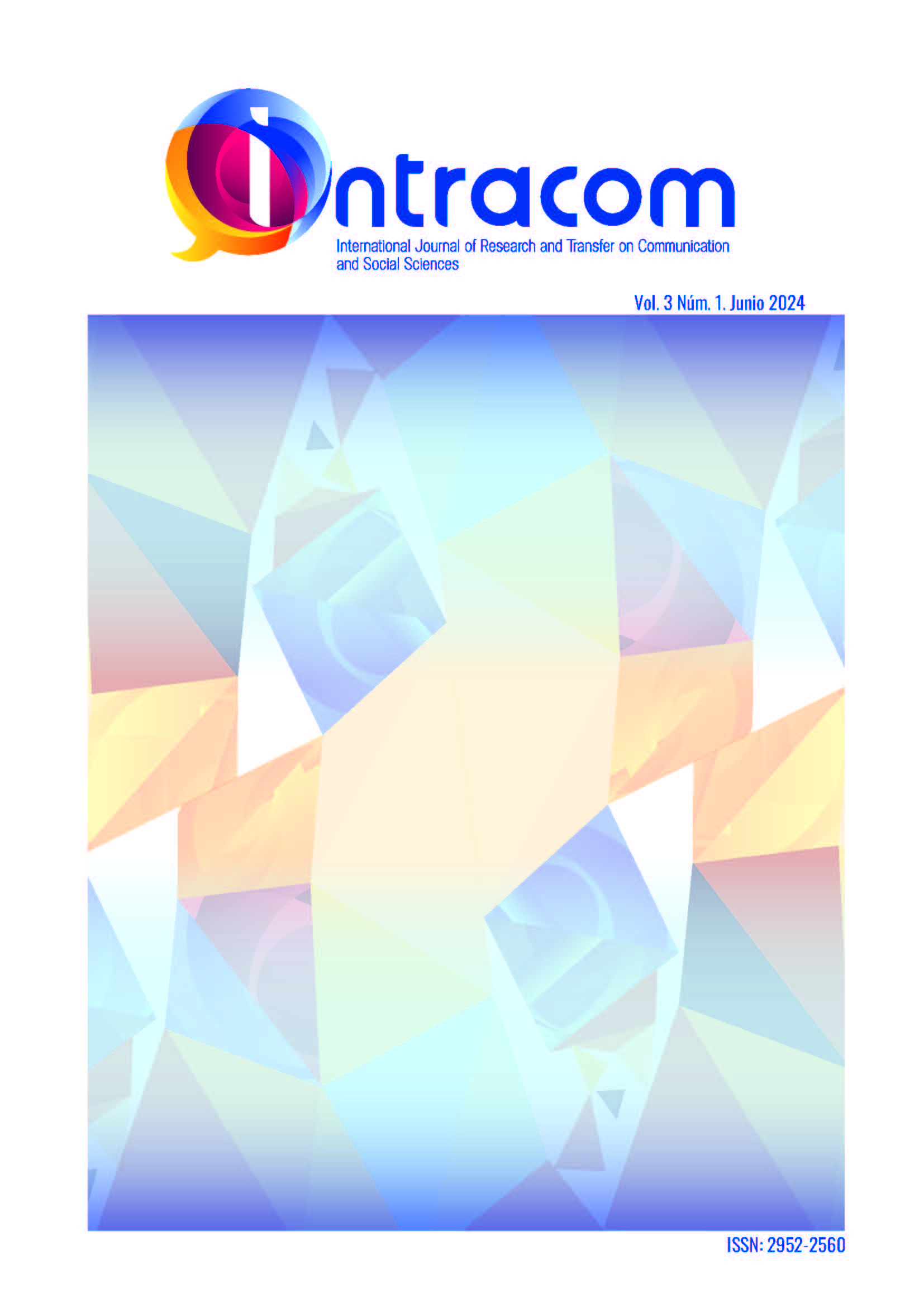Journalism in the post-truth era
the EU to the rescue of truthful, independent and plural information
DOI:
https://doi.org/10.61283/mxprkn56Keywords:
fake news, post-truth, journalism, democracy, European UnionAbstract
The break of the citizens' confidence in the information conveyed to them by the media is not a minor issue. In a regime of opinion and in a globalized society in which the issues that directly affect us are beyond our reach or understanding, the mediation work of journalists is essential. For this reason, the phenomenon of fake news in the so-called post-truth era is of paramount importance because it undermines the notion of truth, which is supposed to be the heart and raison d'être of the journalistic profession. The task of journalists is to provide public opinion with true or honestly truthful information that allows citizens to form a complete idea of what is happening and, based on this, make well-founded decisions on matters under public discussion. Without a minimum consensus on the facts, citizens are exposed to the effects of pure propaganda, their ability to decide is manipulated and the core of democracy damaged. The actions of tobacco companies to deny the lethality of tobacco, the denial of climate change, the orchestrated campaigns against the efficacy of vaccines or the unbridled dissemination of "alternative facts" in politics, have highlighted the fragility of the truth in the face of to the distorting power of unscrupulous media and irrepressible social networks.
Downloads
References
Cagé, Julia (2016): Salvar los medios de comunicación, Anagrama, Barcelona.
Clark, Marilyn y Grech, Anna (2017): Journalists under Pressure: Unwarranted interference in Europe, fear and self-censorship, Consejo de Europa. Disponible en: https://book.coe.int/en/human-rights-and-democracy/7284-journalists-under-pressure-unwarranted-interference-fear-and-self-censorship-in-europe.html. Consulta: noviembre 2022.
Centre For Media Pluralism And Media Freedom (2022): Media Pluralism Monitor 2022. Disponible en: https://cmpf.eui.eu/mpm2022-results/. Consulta: junio 2024.
Comisión Europea (2018): Código de Buenas Prácticas en Materia de Desinformación. Disponible en: https://digital-strategy.ec.europa.eu/en/library/2018-code-practice-disinformation. Consulta: junio 2024.
Comisión Europea (2020): Plan de Acción para la Democracia Europea. Disponible en: https://eur-lex.europa.eu/legal-content/ES/TXT/HTML/?uri=CELEX:52020DC0790&from=ES. Consulta: junio 2024.
Comisión Europea (2021a): Convocatoria de Evidencias “Protección de la libertad y el pluralismo de los medios de comunicación en el mercado interior (Ley de Libertad de los Medios de Comunicación)”. Disponible en: https://ec.europa.eu/info/law/better-regulation/have-your-say/initiatives/13206-Safeguarding-media-freedom-in-the-EU-new-rules_en. Consulta: junio 2024.
Comisión Europea (2021b): Convocatoria Pública Abierta “Protección de la libertad y el pluralismo de los medios de comunicación en el mercado interior (Ley de Libertad de los Medios de Comunicación)”. Disponible en:
https://ec.europa.eu/info/law/better-regulation/have-your-say/initiatives/13206-Safeguarding-media-freedom-in-the-EU-new-rules/public-consultation_en. Consulta: junio 2024.
Comisión Europea (2021c): Recomendación sobre la Protección, Seguridad y Empoderamiento de los Periodistas. Disponible en: https://digital-strategy.ec.europa.eu/en/library/recommendation-protection-safety-and-empowerment-journalists. Consulta: junio 2024.
Comisión Europea (2022): Código Reforzado de Buenas Prácticas en Materia de Desinformación. Disponible en: https://digital-strategy.ec.europa.eu/en/library/2022-strengthened-code-practice-disinformation. Consulta: junio 2024.
Comisión Europea (2022): European Media Freedom Act (propuesta). Disponible en: https://eur-lex.europa.eu/legal-content/EN/TXT/?uri=CELEX%3A32024R1083. Consulta: junio 2024.
Espada, Arcadi (2008): Periodismo práctico, Espasa Calpe, Madrid.
Lippmann, Walter (2003): La opinión pública, Langre, Madrid.
Pew Research Center (2022): “U.S. adults under 30 now trust information from social media almost as much as from national news outlets”. Disponible en: https://www.pewresearch.org/fact-tank/2022/10/27/u-s-adults-under-30-now-trust-information-from-social-media-almost-as-much-as-from-national-news-outlets/. Consulta: septiembre de 2022.
Reuters Institute (2022): Digital News Report 2022. Disponible en: https://reutersinstitute.politics.ox.ac.uk/sites/default/files/2022-06/Digital_News-Report_2022.pdf, consulta: septiembre de 2022.
Rodríguez Borges, Rodrigo Fidel (2020): “El valor de los valores en el periodismo del siglo XXI: la formación ética del periodista en la era de la posverdad”, Revista Anàlisi, nº 62. Disponible en: https://www.raco.cat/index.php/Analisi/article/download/10.5565-rev-analisi.3277/465016. Consulta: noviembre 2022.
The Economist (2016): “Art of lie”. Disponible en: https://www.economist.com/leaders/2016/09/10/art-of-the-lie. Consulta: septiembre de 2022.
White, Aidan (2015): The Trust Factor. An EJN Review of Journalism and Self-regulation. Disponible en: https://ethicaljournalismnetwork.org/wp-content/uploads/2017/01/truth-factor-full.pdf. Consulta: noviembre 2022.
Published
Issue
Section
License
Copyright (c) 2024 Rodrigo Fidel Rodríguez Borges (Autor/a)

This work is licensed under a Creative Commons Attribution-NonCommercial-ShareAlike 4.0 International License.
Política de acceso abierto
Se permite el acceso libre y abierto de cualquier interesado a todos los contenidos de los números de la revista, sin costo alguno, pudiendo imprimir y trasladar todos los artículos, con la única condición de precisar la fuente y la autoría.
La revista: a) no cobra a las autorías costes por el procesamiento de los artículos ni por el envío de los mismos, b) mantiene el copyright para los autores sin restricciones, c) facilita a los autores conservar sus derechos de publicación sin limitaciones.
La Revista Internacional de Investigación y Transferencia en Comunicación y Ciencias Sociales (INTRACOM) es una obra original gestionada por Activa 19 Comunicaciones. Todos los artículos incluidos en la Revista son obra original de sus respectivas autorías. Esta Revista se ofrece libremente a la comunidad científica y académica sin coste alguno y libera los contenidos de acuerdo a la licencia "Reconocimiento-NoComercial-CompartirIgual 4.0 CC BY-NC-SA" del proyecto Creative Commons dispuesta en la siguiente url: https://creativecommons.org/licenses/by-nc-sa/4.0/legalcode







